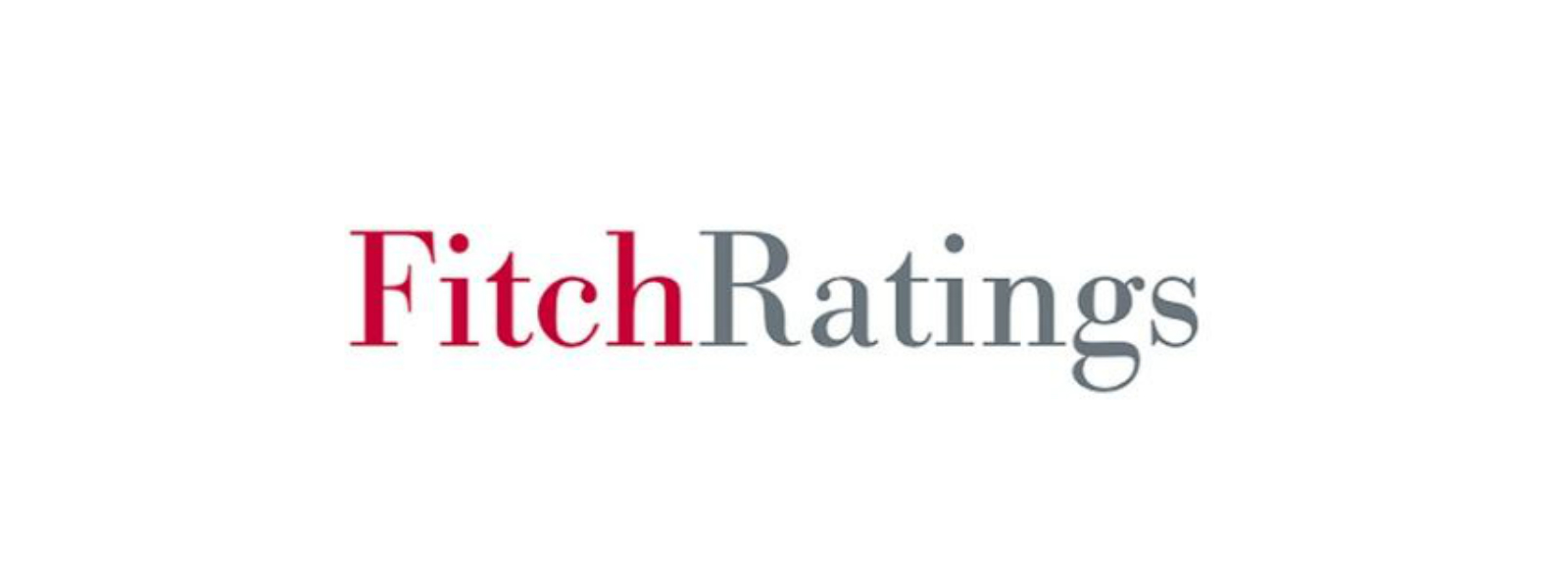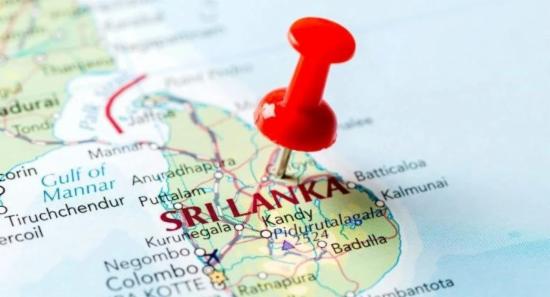.webp)

Fitch Affirms Ceylon Electricity Board at 'AA-(lka)'
COLOMBO: Fitch Ratings has affirmed Sri Lanka-based Ceylon Electricity Board's (CEB) National Long-Term Rating at 'AA-(lka)' with a Stable Outlook.
Fitch also affirmed the National Long-Term Rating on CEB's senior unsecured debentures at 'AA-(lka)'.
CEB's ratings are equalised with that of its parent, the Sri Lankan sovereign (CCC), in line with Fitch's Government-Related Entities (GRE) Rating Criteria.
This is based on the assessment of a very strong likelihood of support from the state. CEB is the country's monopoly electricity transmitter and distributor and accounts for around 70% of the power generation.
KEY RATING DRIVERS:
Very Strong State Linkages: Fitch believes CEB's status, ownership and control by the Sri Lankan sovereign is 'Very Strong'. The government fully owns CEB, appoints its board and senior management, sets tariffs and decides on its investment strategy. CEB fulfils an essential service for the state by providing electricity at subsidised rates.
We assess the support record as 'Very Strong' as we believe there is a high likelihood of state support for CEB. Government support to CEB has included direct grants, two-step loans from multinational agencies, which account for around 65% of its outstanding debt, equity injections and guarantees on bank loans for some of its investment projects and working-capital requirements. We expect the support to continue as the government would want to ensure uninterrupted power supply in the country.
Very Strong Support Incentive: We see the socio-political implications of a CEB default as 'Very Strong' as it would lead to service disruption because the board accounts for most of the country's power-generation capacity. A default would also make it difficult for CEB to source imported feedstock for power generation such as heavy oil and coal. CEB's independent power producer agreements, which account for around 30% of the power generated, will be affected as they are external arrangements with no clear alternatives and most use imported oil in their operations.
A default by CEB would have a 'Very Strong' financial effect on the state, as CEB's project loans are also the state's obligations. These loans are extended by bilateral and multilateral agencies and routed through the government for development of the country's power infrastructure. Thus, a default on these project loans can be tantamount to a government default, dampening the state and its related entities' ability to raise debt.
Feedstock Imports Manageable: CEB has indicated it will be able to import the coal and fuel oil required for its thermal plants, which accounted for around 60% of electricity generation in 2020. CEB has a LKR10 billion unutilised facility for coal imports from state banks, and another LKR30 billion in credit lines with the Ceylon Petroleum Corporation. These facilities can be increased to ensure uninterrupted power supply. Fuel imports remain a challenge as foreign reserves have dropped to USD2.3 billion by September 2021 from USD6.7 billion a year earlier.
Weak Financial Profile: Fitch does not expect CEB to generate sufficient EBITDA over the medium term due to the absence of a cost-reflective tariff policy, while low-cost hydropower generation is volatile. CEB would have to rely on costly thermal sources to meet demand, similar to 2019, as hydro capacity accounted for only 42% of the installed capacity in 2020. Fitch does not expect liquified natural gas (LNG) sources to come online before 2023; LNG is likely to be cheaper than oil, the dominant fuel currently for power generation.
Weak Standalone Profile: Fitch assesses CEB's standalone credit profile to be much weaker than its support-driven rating. We believe providing a notch-specific standalone credit view of CEB is difficult due to poor margin visibility and the need for continued state support to sustain operations. CEB's free cash flow (FCF) remains negative due to the lack of a cost-reflective tariff structure or an effective compensation mechanism.
Cash Collection to Improve: Fitch expects CEB's receivable days to improve to 45 in 2021 from 61 in 2020, as consumers adjust to the new normal environment of the Covid-19 pandemic. CEB has also ramped up its efforts to increase receivable collection compared with 2020 when it took a more lenient approach during the height of the pandemic.
NCRE Contribution to Increase: CEB is looking to shift its long-term energy generation mix to non-conventional renewable energy sources (NCRE) such as rooftop solar and wind. CEB targets 20% of power generation from NCRE by 2023 (2020: around 5%). The shift to NCRE will follow the independent power producer model to increase private-sector participation in developing the power sector, which would reduce the funding pressure at CEB to increase installed capacity.
DERIVATION SUMMARY: CEB, which has 'Very Strong' assessments in each sub-factor score under the GRE criteria, can be compared with Sri Lanka Telecom PLC (SLT, AA-(lka)/Stable), another state-owned company. SLT has a stronger credit profile than the sovereign and its rating is constrained by strong linkages with the state under the GRE criteria.
SLT is assessed as 'Strong' for status, ownership and control because the state holds a majority stake directly and indirectly, and exercises significant influence over its operating and financial profile. We consider the support track record for SLT 'Strong' in light of its strategic importance in expanding the country's fibre infrastructure. SLT has not required tangible financial support historically due to its healthy financial profile.
Fitch sees the socio-political implications of a default by SLT as 'Moderate' due to the presence of three other privately owned telcos. However, it could affect the fixed-line market because SLT acts as a policy company to invest in fibre networks across the island to support the government's vision of fibre-based internet for all households. Fitch sees the financial implications of a default as 'Strong', as it may have an impact on the availability and cost of financing options for other Sri Lankan GREs.
KEY ASSUMPTIONS:
Fitch's Key Assumptions Within Our Rating Case for the Issuer
- Sri Lanka's annual electricity demand growth to average around 5% over 2021-2024;
- No material increase in electricity tariffs in the next 12-18 months;
- Generation mix to broadly remain at 58% thermal, 33% hydro and 9% others over 2021-2024;
- Capex of LKR90 billion per annum over 2021-2024 mainly on maintenance and new generation capacity.
RATING SENSITIVITIES:
Factors that could, individually or collectively, lead to positive rating action/upgrade:
- An upgrade of the Sri Lankan sovereign's Long-Term IDR could result in corresponding action on CEB's National Long-Term Rating.
Factors that could, individually or collectively, lead to negative rating action/downgrade:
- A significant weakening in the likelihood of support from the sovereign;
- A downgrade of the Sri Lankan sovereign's Long-Term IDR could result in corresponding action on CEB's National Long-Term Rating.
LIQUIDITY AND DEBT STRUCTURE: Government Supports Liquidity: CEB had LKR9.4 billion of unrestricted cash and LKR6 billion in unutilised credit lines at end-June 2021 to meet LKR48 billion in debt due in the next 12 months. Around LKR34 billion of the debt consisted of working-capital lines, which we believe will be rolled over in the normal course of business. We expect the government to continue stepping in and providing funding support to meet the contractual maturities amid CEB's negative FCF.
ISSUER PROFILE: CEB is the sole electricity transmitter and distributor in Sri Lanka and is a fully owned state entity. It accounts for 70% of domestic electricity generation through its network of hydro and thermal power plants.
REFERENCES FOR SUBSTANTIALLY MATERIAL SOURCE CITED AS KEY DRIVER OF RATING: The principal sources of information used in the analysis are described in the Applicable Criteria.
PUBLIC RATINGS WITH CREDIT LINKAGE TO OTHER RATINGS: CEB's ratings are equalised with that of its parent, the Sri Lankan sovereign, in line with Fitch's Government-Related Entities Rating Criteria.
Other Articles
Featured News





.png )
-753360_550x300.jpg)


-753338_550x300.jpg)
-753332_550x300.jpg)



-753118_550x300.jpg)
-753105_550x300.jpg)

















.gif)